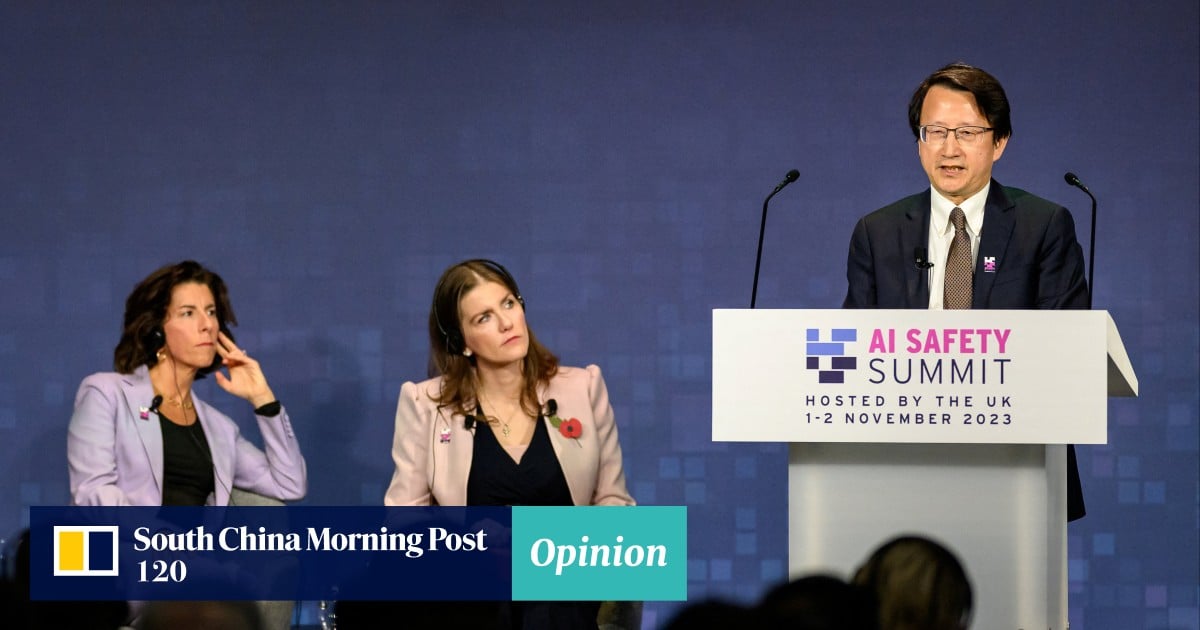President Xi Jinping of China recently concluded his sixth visit to the United States. Despite the positive outcomes of the visit, tensions persist between the West and China. There is a growing consensus in the West on the need to diversify supply chains away from China in critical areas for regional security, overshadowing past discussions of a G2 partnership.
In the UK, concerns about espionage in parliament and a warning from MI5 about alleged Chinese espionage activities involving over 20,000 individuals have strained trust further. Nevertheless, the British government extended an invitation to China to participate in the AI Safety Summit.
Chinese representatives attended events at Bletchley Park on both occasions but were not included in a public AI-related meeting. Wu Zhaohui, the Vice-Minister of Science and Technology for China, emphasized the importance of global cooperation in advancing AI technologies and making AI systems accessible to the public through open-source platforms.
While some harbor reservations about China’s involvement in the summit, former President Liz Truss conveyed to Prime Minister Rishi Sunak that it is unrealistic to expect China to adhere to agreements reached at such conferences. Despite this skepticism, the efforts of the British in fostering dialogue on AI challenges and extending an invitation to China are commendable.
China has set a target of achieving global AI leadership by 2030, with substantial investments rivalling those of the US and leading in AI growth, attracting billions annually.
China has outpaced the US, EU, and UK in enacting AI-related legislation. Following the issuance of regulations on recommendation algorithms, China introduced new guidelines for private AI development focusing on generated images and chatbots in July.
Subsequently, Western nations have made progress. President Joe Biden signed an executive order outlining eight guiding principles for the safe and reliable development of AI. The UK is formulating an innovation-driven AI strategy, while the European Union is crafting AI regulations.
However, efforts to mitigate the significant risks associated with AI will be futile without a global consensus.
AI is increasingly integrated into autonomous weapon systems, raising concerns among researchers about the potential for these systems to make independent destructive decisions, impacting the nature of warfare. Vigilant monitoring and regulation of AI development are imperative.
This underscores the significance of China’s AI advancements. The People’s Liberation Army has heavily invested in AI applications such as robotics and swarming, with Beijing’s decisions shaping the trajectory of AI development. Understanding the nuances of China’s evolving AI landscape is crucial.
Israel deploying AI-powered riot control weapons at a West Bank checkpoint underscores the global implications of AI development.
It is essential for the West to recognize the relevance of China’s AI governance structures and regulatory advancements. Engaging with China in discussions is vital for addressing international challenges effectively, particularly in the realms of pandemic preparedness and climate change.
Global cooperation is imperative in addressing conflicts and environmental crises.
China’s expanding role in global governance, exemplified by initiatives like the Belt and Road Initiative and active involvement in conflict resolution, highlights its growing influence on the world stage. Beijing’s mediation efforts in various international conflicts signal a shift towards greater global engagement.
The upcoming AI Security Summits in South Korea and France in 2024 aim to foster collaboration on AI governance and global action.
Achieving consensus on issues of global significance necessitates broad participation, including China’s involvement in shaping the future of AI governance.






